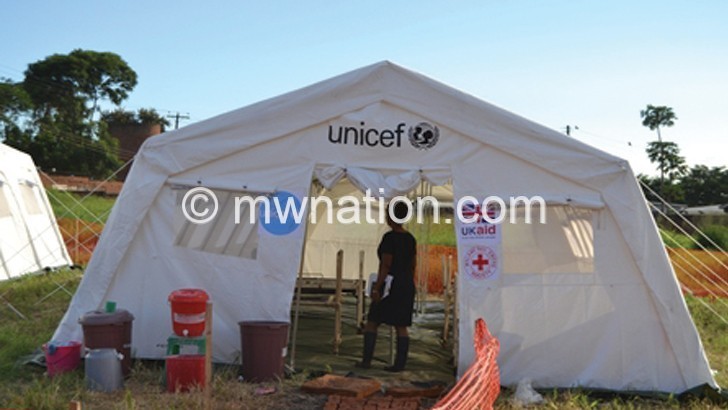Experts tip govt on cholera
As cases of cholera continue to rise, commentators have urged government and its partners to develop multi-levelled behaviour change strategic plans comprising right approaches and frameworks necessary to motivate behaviour change at individual, interpersonal, community and society levels to win the fight against the deadly disease.
The comments follow a Weekend Nation inquiry which exposed the information gap among some members of affected communities in Lilongwe which have been hit hard by cholera.
In random interviews with affected families at Mitengo Village in Area 36, it was clear they could not connect poor hygiene standards to cholera. They literally think cholera is but just one of the diseases which will come and go as per God’s wish.
Ministry of Health has always insisted that myths which include the belief in witchcraft among some communities have aggravated the spread of cholera.
However, commenting on the development, Social and Behavior Change communication specialist Mike Nazombe, who is a lecturer at the Malawi Polytechnic, a constituent college of the University of Malawi, argues that the root causes to cholera outbreaks are multileveled, ranging from individual, family and friends, community, organisations and society. Hence, government and its stakeholders need to design and implement diligent behaviour change strategies which go beyond simply raising awareness.
According to Nazombe, while raising awareness is important, it must not be final it itself but the first step, because behaviour change is a complex process.
He said the strategic plan should first aim at identifying the people’s negative behaviour such as poor hygiene and its root causes at every level individual, interpersonal, community and society as whole.
From this, the plan should identity appropriate approaches that target all the levels. “Models such as the Social Ecological Model will help identify and examine issues at the individual level [ knowledge, perceptions, attitudes, fears]; interpersonal level [experiences, values and aspirations in relation to health behavior]; community level [traditions, customs, practices, norms and values] and social level [policies, strategies, laws, values and advocacy],” Nazombe said.
He maintains that the intervention and implementation of the strategic action to control cholera starts with drilling knowledge at all levels about unhygienic behaviour leading to the epidemic and make them aware that this is a problem.
Nazombe stressed that the second and the most important step is the empowerment of the people themselves to take responsibility to correct their behaviour.
He added: “Empowerment of all levels concerned [is needed] so that they take resolute actions to uproot the root causes and actively collaborate in the fight. The empowerment process entails increasing knowledge in the people for them to see the problem; stimulating energy, efficacy and sense of ownership for them to decide and choose the best course of action so that they are accountable for the change by actively participating in the fight against cholera”.
Responding to observations Ministry of Health (MoH) spokesperson Joshua Malango said it is too early for the ministry to make a logical statement about the outbreak as they are still monitoring the situation.
He said after the outbreak is over—a postmortem will be conducted to know the way forward.
According to MoH publicist, the ministry is responding to the outbreak and are continuously monitoring and evaluating the interventions to achieve the intended outcome.
According to figures released by the Ministry of Health as of Thursday, the country had recorded a total of 880 cases of cholera with 28 deaths registered since the onset of the outbreak somewhere in December last year.





